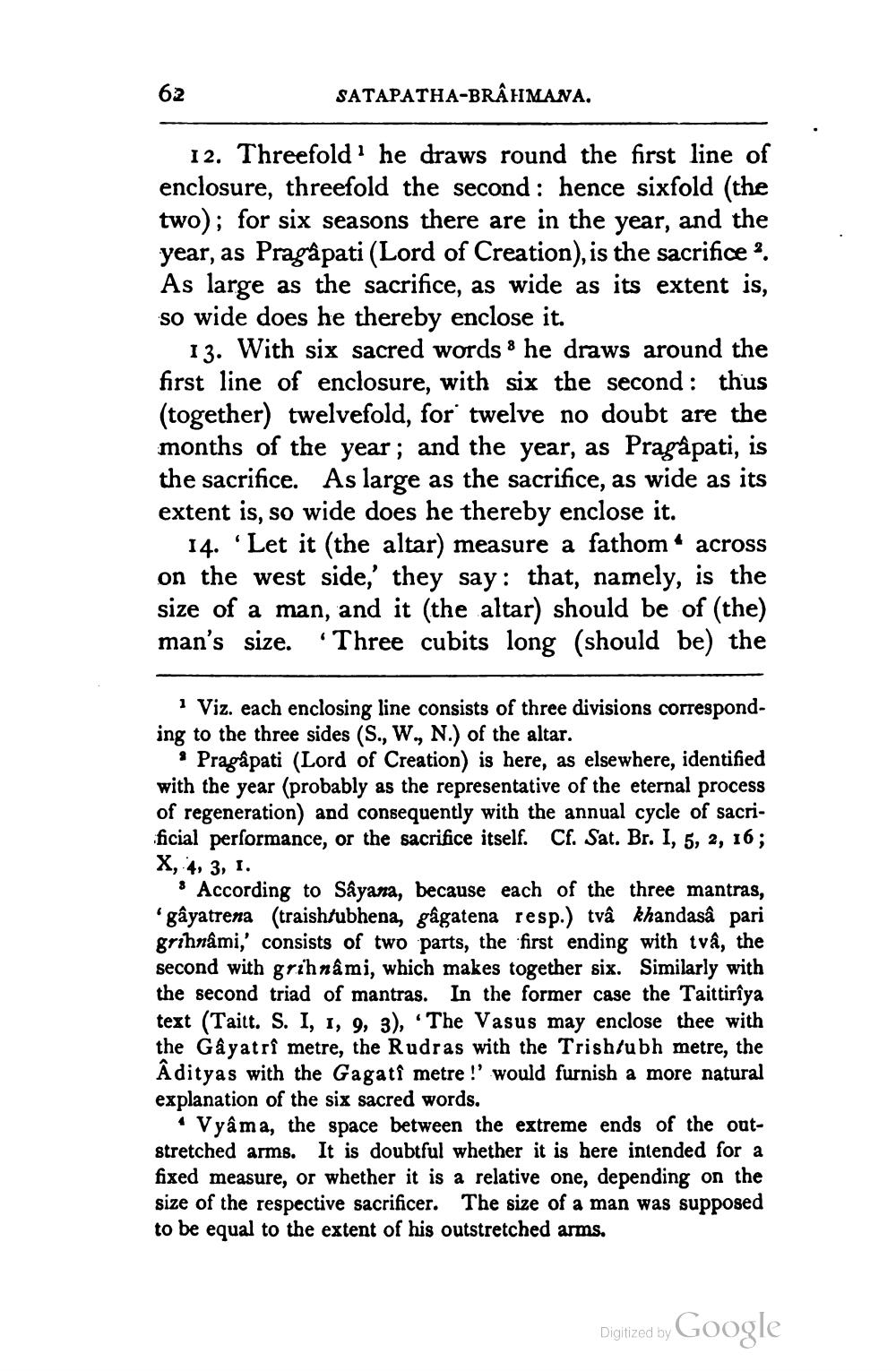________________
SATAPATHA-BRAHMANA.
12. Threefold' he draws round the first line of enclosure, threefold the second : hence sixfold (the two); for six seasons there are in the year, and the year, as Pragâpati (Lord of Creation), is the sacrifice 2. As large as the sacrifice, as wide as its extent is, so wide does he thereby enclose it.
13. With six sacred words 8 he draws around the first line of enclosure, with six the second : thus (together) twelvefold, for twelve no doubt are the months of the year; and the year, as Pragàpati, is the sacrifice. As large as the sacrifice, as wide as its extent is, so wide does he thereby enclose it.
14. 'Let it (the altar) measure a fathom across on the west side,' they say: that, namely, is the size of a man, and it (the altar) should be of (the) man's size. "Three cubits long (should be) the
ing to the three scord of Creation) sentative of the eterle of sacri
1 Viz. each enclosing line consists of three divisions corresponding to the three sides (S., W., N.) of the altar.
* Pragâpati (Lord of Creation) is here, as elsewhere, identified with the year (probably as the representative of the eternal process of regeneration) and consequently with the annual cycle of sacrificial performance, or the sacrifice itself. Cf. Sat. Br. I, 5, 2, 16; X, 4, 3, 1.
According to Sâyana, because each of the three mantras, 'gâyatrena (traishtubhena, gâgatena resp.) tvà khandasâ pari grihnâmi,' consists of two parts, the first ending with två, the second with grihnâmi, which makes together six. Similarly with the second triad of mantras. In the former case the Taittirîya text (Taitt. S. I, I, 9, 3), The Vasus may enclose thee with the Gayatri metre, the Rudras with the Trishtubh metre, the Adityas with the Gagatî metre !' would furnish a more natural explanation of the six sacred words.
• Vyâma, the space between the extreme ends of the outstretched arms. It is doubtful whether it is here intended for a fixed measure, or whether it is a relative one, depending on the size of the respective sacrificer. The size of a man was supposed to be equal to the extent of his outstretched arms.
Digitized by Google




